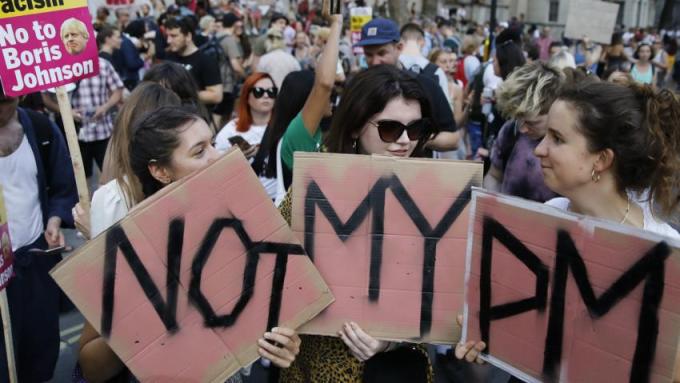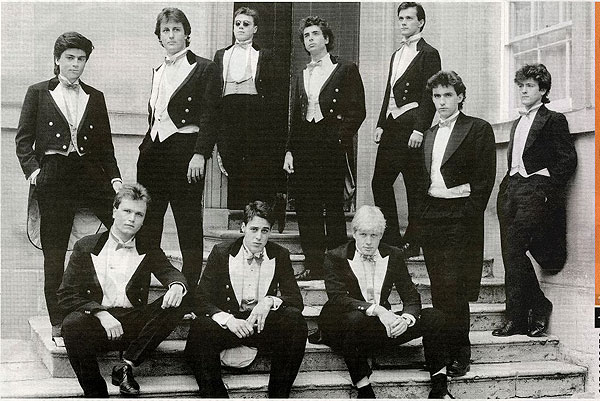There are many contributing factors leading to a deterioration of one’s mental health; environmental, genetic and of course abuse in all its varying forms. Each of these elements can have a profound effect on someone’s psychological wellbeing. However, there is one particular aspect that is linked to practically all mental health conditions and that is poverty. More specifically, economic inequality or what can otherwise be termed as relative poverty.
A paper published in the Lancet Psychiatry by Dr Wagner Ribiero investigated the correlation between income inequality, mental health problems, the use of services and resilience. This inquiry was conducted via a systematic review and a meta analysis. What Ribeiro found was that widening economic inequality is associated with higher rates of mental health incidents, particularly with regards to depression and anxiety. Additional studies suggest that schizophrenia, narcissism and psychotic symptoms are also more common in unequal societies.
Furthermore, this proposed link appears to be more prevalent in English speaking countries, particularly in the US and the UK, which incidentally are two of the most unequal countries in the developed world. To put this into perspective, Sweden is considered a rich country, but displays markedly lower levels of economic inequality than the UK. Similarly to the UK, Sweden boasts a comprehensive health system, but contrastingly has substantially lower levels of social and mental health problems. Findings by Wilkinson and Pickett published in their book The Spirit Level similarly highlighted a disparity between the ‘anglosphere’ and mainland Europe with regards to mental health issues and economic inequality.

With this in mind, surely if we truly care about society as a whole and how our species can flourish, it makes complete sense to investigate this pathway in a little more detail. As previously mentioned, a key driver persistent throughout the research is that of economic inequality as opposed to absolute poverty. In a nutshell, impaired health and in this case mental health is less about being poor and more about feeling poor. It is proposed that relative poverty is related to perceptions of social failure and inferiority, in addition to social isolation, alienation and loneliness.
Notions such as these are exacerbated when living in societies that encourages people to incessantly compare themselves to much wealthier individuals. A practice which by no means is healthy, possessing all the qualities of a sadistic form of motivation and self-punishment. Without doubt, millions of people throughout the world have been subjected to this repeated questioning of the self in the form of advertisement campaigns, TV, magazines and social media.
One theory that attempts to explain the correlation between mental illness and relative poverty, centres around the brain’s dominance behavioural system (DBS). Processing information related to subordination and social dominance, this system is likely connected to a broad range of mental illnesses and personality disorders. It is purported that externalising disorders, mania proneness and narcissistic traits are related to heightened dominance motivation, particularly in individuals exhibiting dominant aggressive traits within this framework (see diagram below for details).
Conversely, in the book The Inner Level, Richard Wilkinson and Kate Pickett suggests that anxiety and depression are linked to subordination and submissiveness. Anxiety in particular, is described as an emotion linked to a sense of powerlessness, social defeat, and a loss of control. Anxious people are regularly checking their social standing, fearful of humiliation and view themselves as possessing minimal power. Studies offer that individuals who display anxiety and depression are likely to hold feelings of shame and submission, while being prone to comparing themselves unfavourably to others.
A commonly held belief suggests that anxiety and stress levels rise as you climb the ladder, undertaking positions of leadership, thus, increasing demands and responsibility, however, this is incongruent to the bulk of the research. A Harvard University paper comparing cortisol levels (elevated when stressed) between leaders and non-leaders, reported lower levels among the former group. Further to this, a study which measured fibrinogen levels (a blood clotting factor which increases when under stress) with a group of UK civil servants discovered that levels were higher in both men and women, the further down the hierarchy they were.

Using a different approach, Dr Robert Sapolsky a neuroendocrinology professor at Stanford University proposes a further explanation. Dr Sapolsky offers that relative poverty generates stress, which in turn produces an overactivity of hormones and neural responses, including the secretion of cortisol. The theory proposes that, surviving at the lower end of the socio-economic scale is associated with raised levels of stress. It is also well documented that elevated cortisol levels is a risk factor for depression, with relatively poor kids displaying higher levels than their richer peers.
High levels of glucocorticoids (of which cortisol is one) affects a part of the brain called the hippocampus, which is critical for memory and learning. Regular exposure to excessive glucocorticoids via stress impairs memory and learning by reducing the excitability in this area. In another portion of the brain called the amygdala, central to fear and anxiety, glucocorticoids increases in excitability, while expanding neuronal connections contributing to heightened responses.
Sapolski’s rationale offers one explanation as to why a condition such as Post Traumatic Stress Disorder shrinks the size of the hippocampus, while expanding the amygdala. Furthermore, glucocorticoids can impact the mesolimbic dopamine system, responsible for reward, anticipation and motivation. This disruption predisposes individuals to anhedonia a component of depression, plus heightening the possibility of addiction. Anhedonia is generally described as a reduced ability to experience pleasure.

The pre-frontal cortex (PFC) is a region of the brain pivotal for long term planning, executive function and impulse control. An excess of glucocorticoids in the PFC results in poor decision making, primarily focusing on short-term gains. As mentioned, stress leads to raised levels of glucocorticoids, making it more difficult to choose long-term health over instant gratification. This process is considered to be a contributing factor as to why people with substantial levels of stress increase in weight, smoke and drink more than people with less stressors. Unsurprisingly, lower socio-economic standing can affect long-term decision making. When day to day living is proving difficult and life is seemingly so precarious, the future can suddenly appear less important.
Financial concerns resulting in a lower socio-economic status are generally exhausting, demoralising and distracting for the individual. Although some of these people may have more money than some people from developing countries, poverty in relation to the rest of society contributes to being despised, shamed and humiliated. As stated earlier, economic inequality automatically emphasises the importance placed on social status. In unequal societies, the dramatic disparities in income can make the rich appear as superior beings. There is also a tendency among capitalist countries to equate an individual’s wealth with their internal worth, thus compounding any negative self-perceptions for people who find themselves battling to make ends meet.

On top of all this, as status anxiety increases along with the inequality of a nation, these societies are also likely to feel less trust towards one another, falling from 60-65% who are trusting in the most egalitarian nations to about 20% in the most unequal. All this can contribute to a reduction in participation within society, for instance, being less likely to volunteer and partake in local activities. The consequences of this is often displayed through an increase of violence, combined with a lack of willingness to help each other out.
All of the above contribute to increasingly stressful social lives and social anxiety, as we worry about how we appear and perform in the world. Responses to this threat can be exhibited as defensive narcissism or alternatively through low self esteem and a lack of confidence. There are multiple reasons to assert that mental health and neoliberalism are not only interconnected, but the former is exploited by the latter. Raised social anxiety and narcissism directly feeds consumerism, which in turn provides a dopamine hit. Additionally, purchases and possessions can be used as a way of giving off a good impression, while attempting to create a sense of self worth. In sum, money becomes essential for many as a means of communicating our value as a person.
Citizens in unequal societies not only work longer hours, but save less and borrow more. In these nations debt rises in a desperate attempt to maintain appearances. Collective emotional vulnerabilities are seized upon by corporations and advertisers, callously using our fears for profit, confirming that status anxiety sells. Meanwhile, economic inequality negatively impacts our mental health, friendships, societal bonds and community life, all of which are integral for our general wellbeing. If somebody does not possess a sufficient income, full participation in society becomes practically impossible. Particularly in a world that prioritises GDP, while celebrating personal wealth and corporate gains over the wellbeing of our fellow human beings.
There are a variety of compelling arguments to suggest why we should reject neoliberalism, of which mental health is just one. This is especially pertinent when considering whether our current system really is the best we can do. Simply put, we could persist with our current dominant political ideology, whereby, a tiny group of people will continue to accrue the bulk of money and power, forever loading the dice in their favour. Or, we can challenge the status quo, constructing a society that works for the most amount of people as possible. Moreover, neoliberalism does not work in harmony with our beleaguered planet or indeed the vast majority of people who inhabit it.
Effective change must involve questioning all that is utilised to support the present doctrine; politics, media, education, the law and in particular how we do business. No area of society should be off limits when trying to imagine a better world for us all and future generations. This article was written to uncover the extent in which economic inequality contributes to mental distress and to ensure this too is added to a growing list of reasons why we should fight for a serious paradigm shift towards a more compassionate and fairer world.



